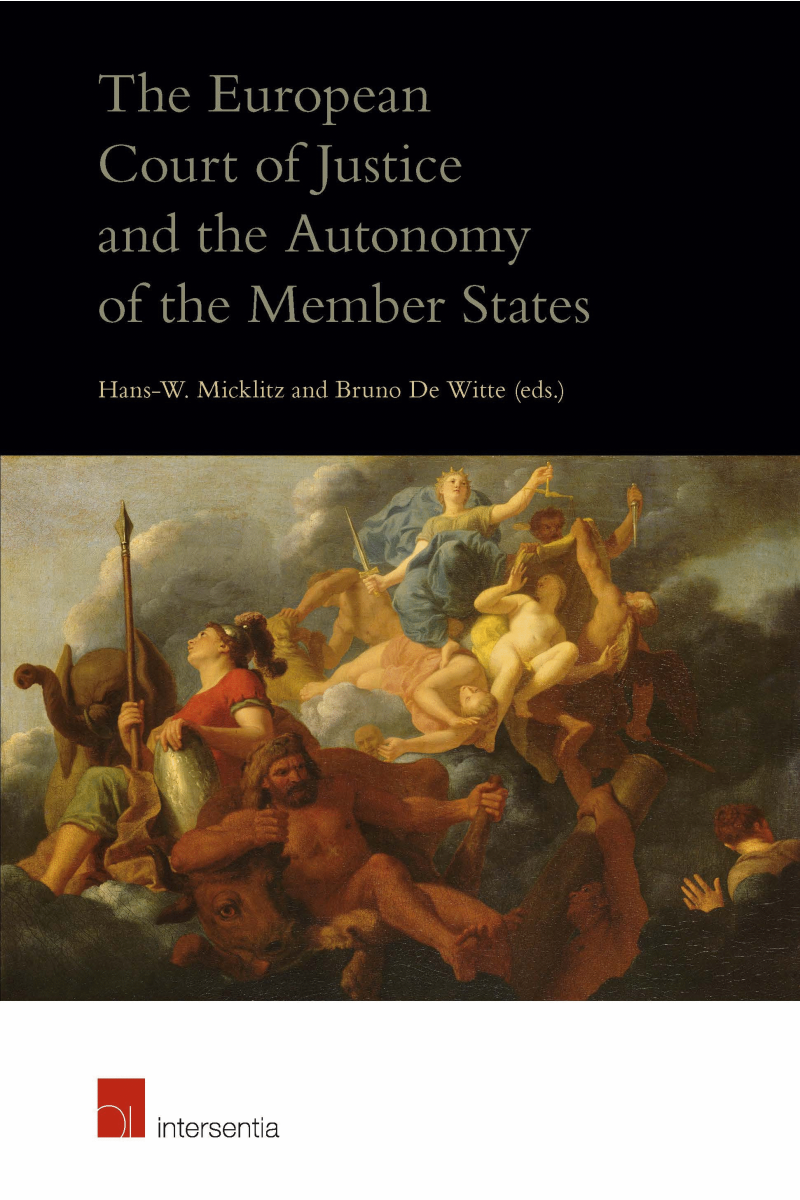 maestro
mastercard
visa
maestro
mastercard
visa

The European Court of Justice and the Autonomy of the Member States

Whereas individual Member State governments occasionally complain about judgments of the Court of Justice of the European Union, especially when those judgments curtail that state’s policy autonomy in a sensitive domain, the collectivity of the Member State governments have agreed, in each treaty revision so far, to confirm and extend the far-reaching powers which the Court of Justice possesses for enforcing EU law. The explanation of the paradox can only be that, deep down, the Member States of the EU remain convinced that an effective Court of Justice with strong enforcement powers is one of the salient features of European Union law which have stood the test of time, and feel no inclination to clip the wings of that Court for fear that this would affect the effectiveness of the European integration process. Nevertheless, the grumblings about single judgments, or about the consistency and direction of the Court in particular policy fields, have never ceased, and indeed have become more audible in recent years. This book deals with the perception that the Court of Justice, quite often, does not leave sufficient autonomy to the Member States in developing their own legal and policy choices in areas where European and national competences overlap.
About this book
‘[…] a book addressing the issue of the ECJ and Member State autonomy could not have come at a more fortunate time. [It] deserves to be praised […] for the high quality of its individual chapters. The contributions were written by renowned experts in the respective fields and offer interesting new insights into the Court’s case law and into the role the latter has played in the European project. […] More research into this field is needed. The present book is an invaluable starting point for scholars wanting to embark on this journey.’
Elke Cloots in 50 CMLR (2013)
| Type of product | Book |
|---|---|
| Format | Paperback |
| EAN / ISSN | 9781780681139 |
| Weight | 852 g |
| Status | Available |
| Number of pages | xiv + 414 p. |
| Access to exercice | No |
| Publisher | Intersentia |
| Language | English |
| Publication Date | Feb 2, 2012 |
| Available on Strada Belgique | No |
| Available on Strada Europe | No |
| Available on Strada Luxembourg | No |
Downloads
- Table of Contents
- part I. Introduction
- Judge-Made Integration?
Hans-Wolfgang Micklitz, Hanna Schebesta - part II . The General Shape of Member State Autonomy in the Court’s Case Law
- Competence and Member State Autonomy: Causality, Consequence and Legitimacy
Paul Craig - The European Court of Justice’s Approach to Primacy and European Constitutionalism – Preserving the European Constitutional Order?
Fabian Amtenbrink - The Judge’s Role in European Integration – The Court of Justice and Its Critics
Jürgen Basedow - part III. INTERNAL MARKET, CITIZENSHIP AND MIGRATION
- How Proportionate is the Proportionality Principle? Some critical remarks on the use and methodology of the proportionality principle in the internal market case law of the ECJ
Norbert Reich - Judicial Activism or Constitutional Interaction? Policymaking by the ECJ in the Field of Union Citizenship
Michael Dougan - “Reserved Areas” of the Member States and the ECJ: the Case of Higher Education
Dragana Damjanovic - The European Court of Justice, Member State Autonomy and European Union Citizenship: Conjunctions and Disjunctions
Theodora Kostakopoulou - part IV. Fundamental Rights
- The Case of Fundamental Rights: a State of Ambivalence
Loïc Azoulai - Fundamental Rights Jurisprudence Between Member States’ Prerogatives and Citizens’ Autonomy
Dagmar Schiek - A Pluralistic Europe of Rights
Marta Cartabia - part V. procedural autonomy of the states
- The “Procedural Autonomy” of Member States and the Constraints Stemming from the ECJ’s Case Law: Is Judicial Activism Still Necessary?
Adelina Adinolfi - Why There is No Principle of “Procedural Autonomy” of the Member States
Michal Bobek - National Voice and European Loyalty. Member State Autonomy, European Remedies and Constitutional Pluralism in EU Law
Daniel Sarmiento Ramirez Escudero - part VI. concluding remarks – the right’s dimension
- The ECJ Between the Individual Citizen and the Member States – A Plea for a Judge-Made European Law on Remedies
Hans-Wolfgang Micklitz - Index